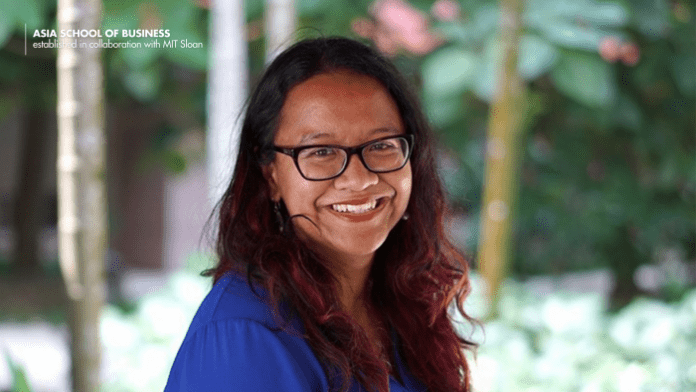Why are people still hesitant to get the vaccine? Is it possible to speed up the registration process with incentives or punishment (carrot vs stick)? Who do people trust for information in regards to their own vaccination decision? What is their perception towards governmental institutions and their policies to normalize vaccinations?
These were some of the central questions that sparked the ASEAN Research Center at Asia School of Business (ARC@ASB) study led by Dr Melati Nungsari and Dr. Sam Flanders of ASB, Dr. Nor Izzatina Abdul Aziz of the Institute of Malaysian and International Studies (IKMAS) at Universiti Kebangsaan Malaysia, and 4 other ASB researchers.
“This is ARC@ASB’s first research report, of many to come. We are focused on delivering meaningful insights to better inform government policies, business strategy and leaders to achieve optimal effectiveness, especially in Southeast Asia,” explained Dr Melati Nungsari, who is the Faculty Director of the center. She is also an Assistant Professor of Economics at the Asia School of Business and a Research Affiliate at MIT Sloan School of Management in Boston.
ARC@ASB is a new research center at ASB that is endowed by Maybank. In support of evidence-based national policies, the study provides insights on how policy-makers can help incentivize residents to register and receive the COVID-19 vaccine.
The team conducted an online survey experiment between June 21st and July 5th this year, and analyzed the results of 1,307 adults residing across Malaysia to produce some interesting preliminary findings.
The preliminary results of a study titled “Norms, Trusts, and Increasing Vaccine Registration in Malaysia” by the ASEAN Research Center at Asia School of Business (ARC@ASB), was published on 1 September 2021.
One survey experiment revealed that 80% of the people who still had not registered to receive the COVID-19 did so once they were entered into a lucky draw for a cash prize.
Another second experiment showed that respondents predicted that a punishment of having to self-pay for PCR COVID-19 tests every two weeks was more effective at promoting vaccinations compared to an incentive of being enrolled in a lucky draw with one large cash prize of RM 1 million.
Approximately half of respondents believe that the nation is on track to achieving herd immunity and 97.4% of respondents believe that the whole nation benefits from vaccination. 77.9% of respondents expect the benefits of herd immunity to be felt by 2022.
95.9% of respondents who had already registered to get their vaccinations expressed the need to continue following social distancing measures even after being vaccinated when facing known vaccine refusers.
Though the study is not representative, it suggests that for Malaysia, providing the chance for individuals to win cash prizes through a vaccination sign-up lucky draw is an effective way of increasing registrations, and consequently, increasing actual vaccination rates.
It also shows that respondents believe that punishments for not signing up, such as mandating self-paid PCR COVID-19 tests every two weeks for those unregistered for the vaccine will expedite vaccination take-up rates as compared to providing a lucky draw for one large cash prize of RM 1 million.
These interventions could potentially help achieve herd immunity sooner than later. The preliminary report for the findings were released on August 24th 2021 and the final paper for the study will be released at a later date, once it has undergone rigorous peer-review at an academic journal.









